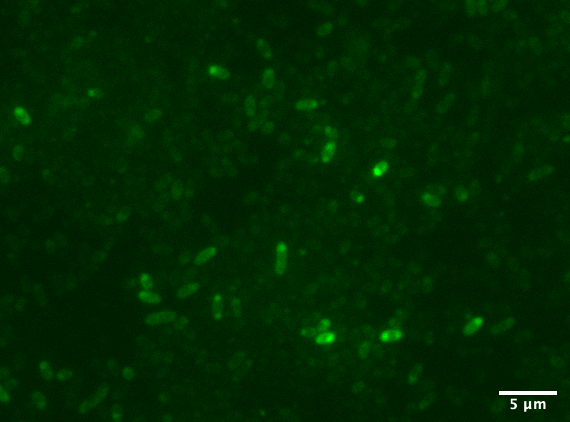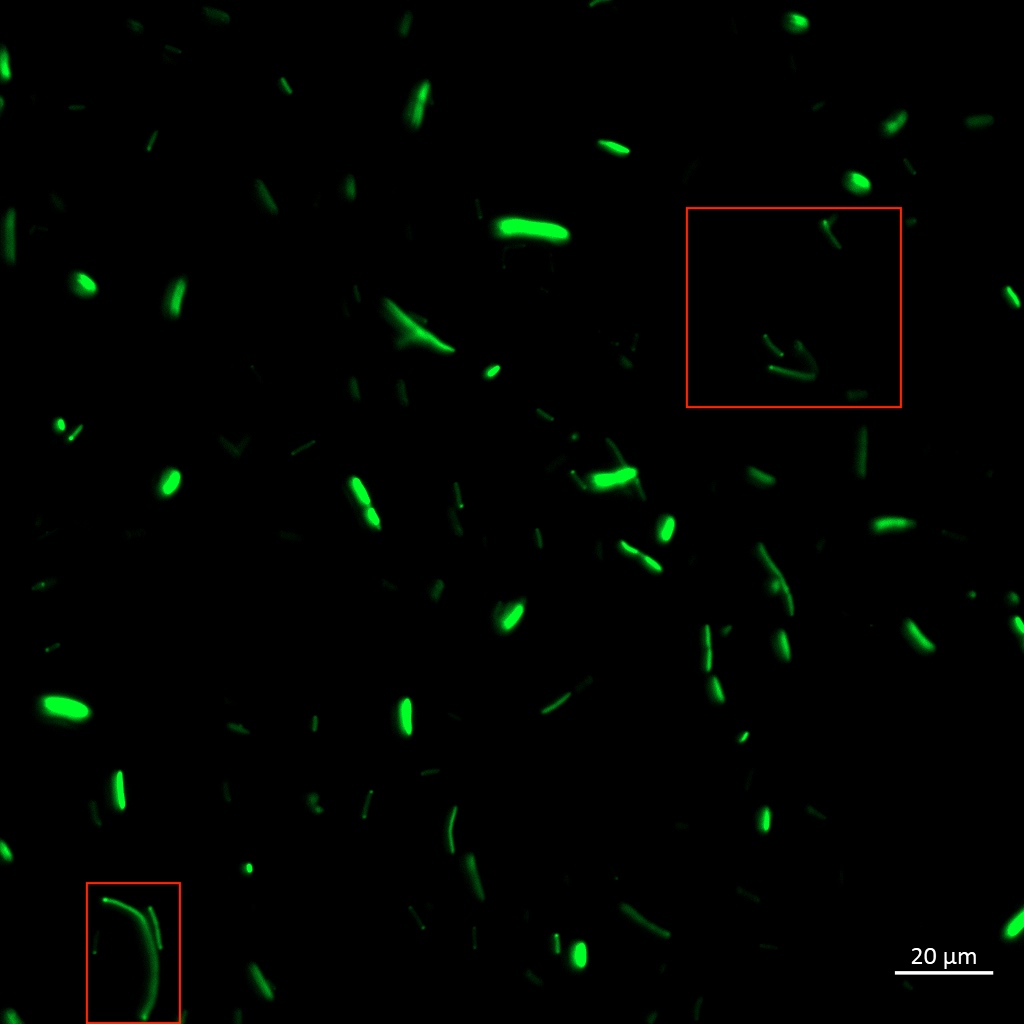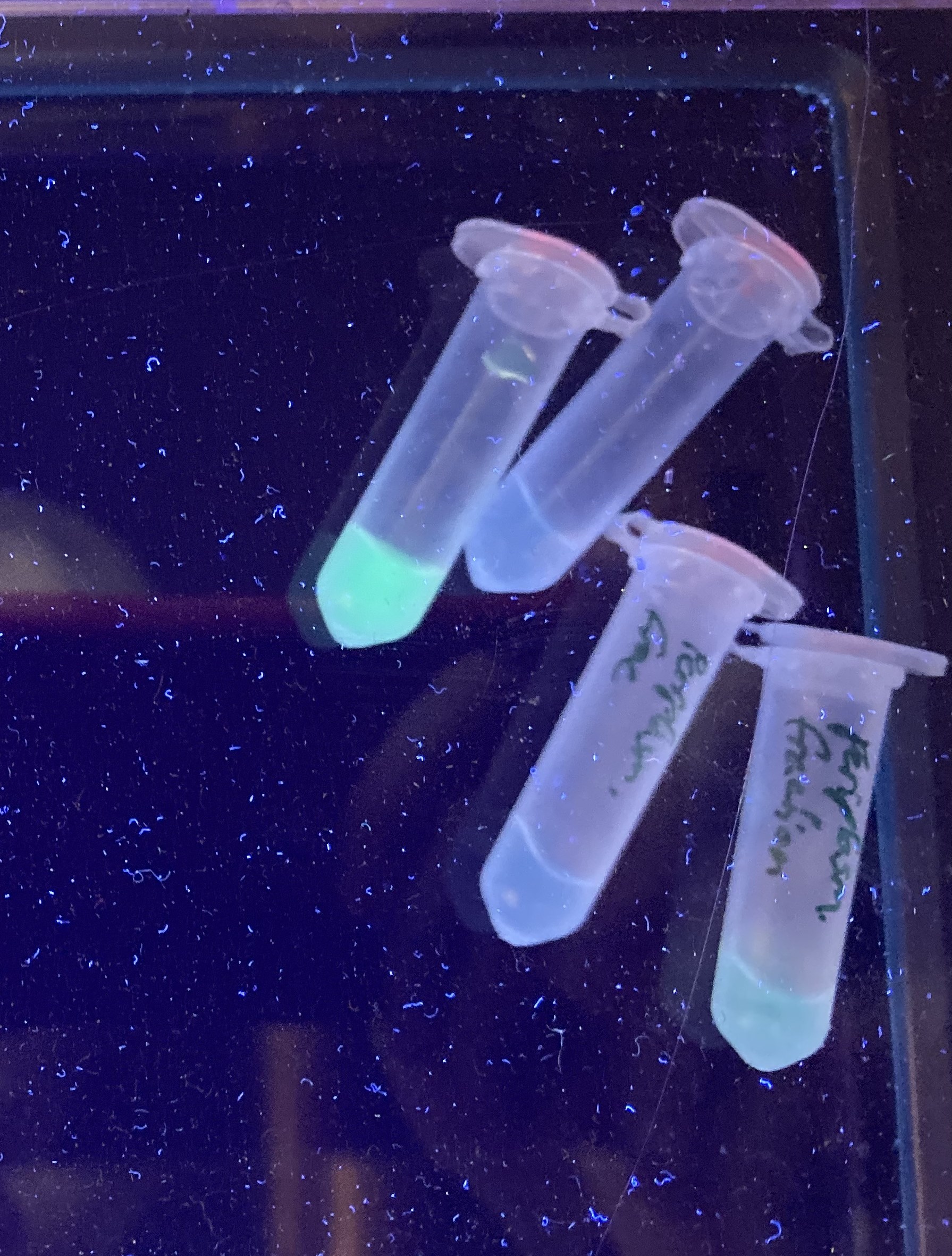Part:BBa_K3016600:Experience
This experience page is provided so that any user may enter their experience using this part.
Please enter
how you used this part and how it worked out.
Applications of BBa_K3016600
Use by Aalto-Helsinki 2019
Aalto-Helsinki characterized this part by fusing it with Vibrio natriegens' TorA Tat signal peptide (BBa_K3016100), creating a composite TorA-YGFP part (BBa_K3016200), to test its functionality in periplasmic protein localisation studies in V. natriegens and Escherichia coli DH5a.
In the images above we see Vibrio natriegens and Escherichia coli DH5a cells expressing TorA-YGFP, which clearly fluoresces in both bacteria. Note the polar localisation of fluorescence. This can be a sign of periplasmic localisation of YGFP under osmotic pressure (Sochacki et al., 2011) or inclusion body formation (Jong et al., 2017).
To be certain of successful periplasmic translocation, a cell fractionation experiment was performed on Vibrio natriegens. The periplasmic fraction of TorA-YGFP expressing cells was extracted (PureFrac-protocol) and placed under UV light, image below. The presence of YGFP in the periplasmic fractions can be seen clearly.
These results indicate that the YGFP protein is active in both Vibrio natriegens' and Escherichia coli DH5a, and that it can successfully translocate into the periplasm of Vibrio natriegens, and possibly even of Escherichia coli, via the Tat pathway.
References:
Alanen, H. I., Walker, K. L., Suberbie, M. L. V., Matos, C. F., Bönisch, S., Freedman, R. B., ... & Robinson, C. (2015). Efficient export of human growth hormone, interferon α2b and antibody fragments to the periplasm by the Escherichia coli Tat pathway in the absence of prior disulfide bond formation. Biochimica et Biophysica Acta (BBA)-Molecular Cell Research, 1853(3), 756-763.
Jong, W. S., Vikström, D., Houben, D., de Gier, J. W., & Luirink, J. (2017). Application of an E. coli signal sequence as a versatile inclusion body tag. Microbial cell factories, 16(1), 50.
Sochacki, K. A., Shkel, I. A., Record, M. T., & Weisshaar, J. C. (2011). Protein diffusion in the periplasm of E. coli under osmotic stress. Biophysical journal, 100(1), 22-31.
Hansen, F. G., & Atlung, T. (2011). YGFP: a spectral variant of GFP. BioTechniques, 50(6), 411-412. https://doi.org/10.2144/000113691
User Reviews
UNIQ37074f2e5294d4ca-partinfo-00000000-QINU UNIQ37074f2e5294d4ca-partinfo-00000001-QINU



